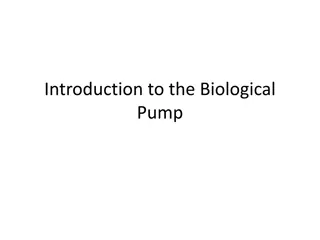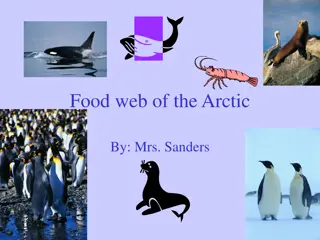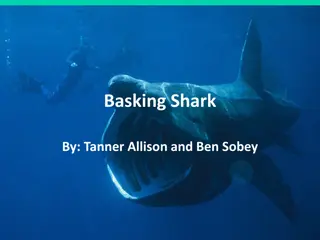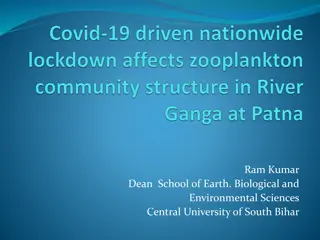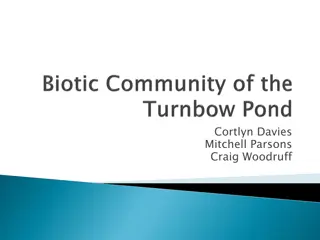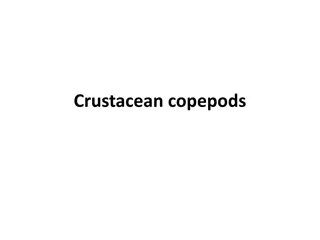Understanding the Biological Pump and Carbon Cycle in the Ocean
The biological pump in the ocean involves photosynthesis by phytoplankton, which removes carbon dioxide from the atmosphere, and respiration, where some CO2 is released back. Phytoplankton are crucial in the ocean's carbon cycle, with primary consumers like zooplankton depending on them for energy.
0 views • 20 slides
Arctic Food Web: A Fascinating Ecosystem of Interconnected Life
Explore the intricate Arctic food web, starting with phytoplankton and zooplankton as primary producers, followed by krill as a key species, which are in turn eaten by fish, squid, and eventually penguins. Learn about the diverse marine life and their roles in this fragile ecosystem.
0 views • 9 slides
Fascinating Facts about Basking Sharks
The basking shark, second largest fish globally, is a filter feeder known for feeding near the surface. They prefer habitats with high zooplankton concentrations and are active year-round. Satellite tagging revealed their migratory patterns and social behaviors. Despite few predators, they are fasci
0 views • 12 slides
Ecology Study of Gangetic River Dolphins and Zooplankton Community Response to Environmental Changes
Ram Kumar, Dean of School of Earth, Biological, and Environmental Sciences at Central University of South Bihar, leads a study on the Gangetic river dolphins, highlighting their ecology and distribution factors. The impact of the COVID-19 lockdown on aquatic ecosystems is discussed, focusing on zoop
0 views • 24 slides
Understanding Zooplankton Dynamics in Aquatic Ecosystems
Zooplankton play a crucial role in aquatic ecosystems by regulating algal populations, serving as a food source for fish, and maintaining ecological balance. This overview covers sampling methods, taxonomic classifications, density measurements, and the impact of zooplankton on fish populations. Iss
0 views • 18 slides
Overview of Crustacean Zooplankton Diversity
Crustaceans, including copepods, cladocera, ostracods, and amphipods, play vital roles as non-gelatinous forms of zooplankton in marine ecosystems. Copepods, the dominant constituents of zooplankton, serve as chief food for commercially important fish species. The diversity of copepods is vast, with
0 views • 18 slides
